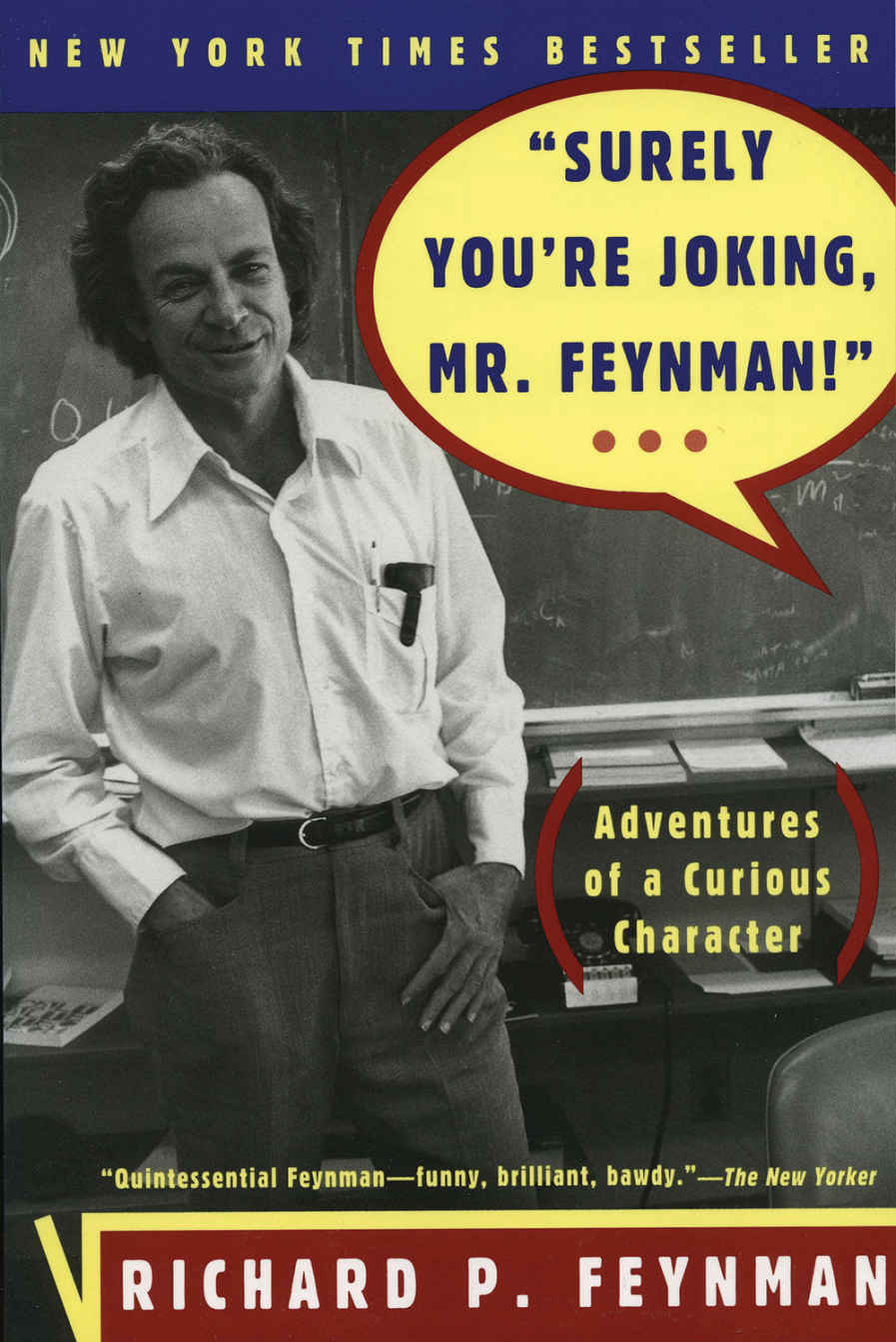Highlights from "Surely You're Joking, Mr by Richard P. Feynman, Ralph Leighton

Highlights from this book
-
“I went up to him, afterwards, and told him I used to do a show in Patchogue, and we had a code, but it couldn’t do many numbers, and the range of colors was shorter, I asked him, ‘How do you carry so much information?’” The mindreader was so proud of his code that he sat down and explained the whole works to my father. My father was a salesman. He could set up a situation like that. I can’t do stuff like that.
-
And then I thought to myself, “You know, what they think of you is so fantastic, it’s impossible to live up to it. You have no responsibility to live up to it!” It was a brilliant idea: You have no responsibility to live up to what other people think you ought to accomplish. I have no responsibility to be like they expect me to be. It’s their mistake, not my failing.
-
So I wrote them back a letter that said, “After reading the salary, I’ve decided that I must refuse. The reason I have to refuse a salary like that is I would be able to do what I’ve always wanted to do—get a wonderful mistress, put her up in an apartment, buy her nice things…. With the salary you have offered, I could actually do that, and I know what would happen to me. I’d worry about her, what she’s doing; I’d get into arguments when I come home, and so on. All this bother would make me uncomfortable and unhappy. I wouldn’t be able to do physics well, and it would be a big mess! What I’ve always wanted to do would be bad for me, so I’ve decided that I can’t accept your offer.”
-
During the conference I was staying with my sister in Syracuse. I brought the paper home and said to her, “I can’t understand these things that Lee and Yang are saying. It’s all so complicated.” “No,” she said, “what you mean is not that you can’t understand it, but that you didn’t invent it. You didn’t figure it out your own way, from hearing the clue. What you should do is imagine you’re a student again, and take this paper upstairs, read every line of it, and check the equations. Then you’ll understand it very easily.” I took her advice, and checked through the whole thing, and found it to be very obvious and simple. I had been afraid to read it, thinking it was too difficult.
-
I understood at last what art is really for, at least in certain respects. It gives somebody, individually, pleasure. You can make something that somebody likes so much that they’re depressed, or they’re happy, on account of that damn thing you made! In science, it’s sort of general and large: You don’t know the individuals who have appreciated it directly.
-
I started to say that the idea of distributing everything evenly is based on a theory that there’s only X amount of stuff in the world, that somehow we took it away from the poorer countries in the first place, and therefore we should give it back to them. But this theory doesn’t take into account the real reason for the differences between countries—that is, the development of new techniques for growing food, the development of machinery to grow food and to do other things, and the fact that all this machinery requires the concentration of capital. It isn’t the stuff, but the power to make the stuff, that is important.
-
when you have a very wide range of people who contribute without looking carefully at it, you don’t improve your knowledge of the situation by averaging.